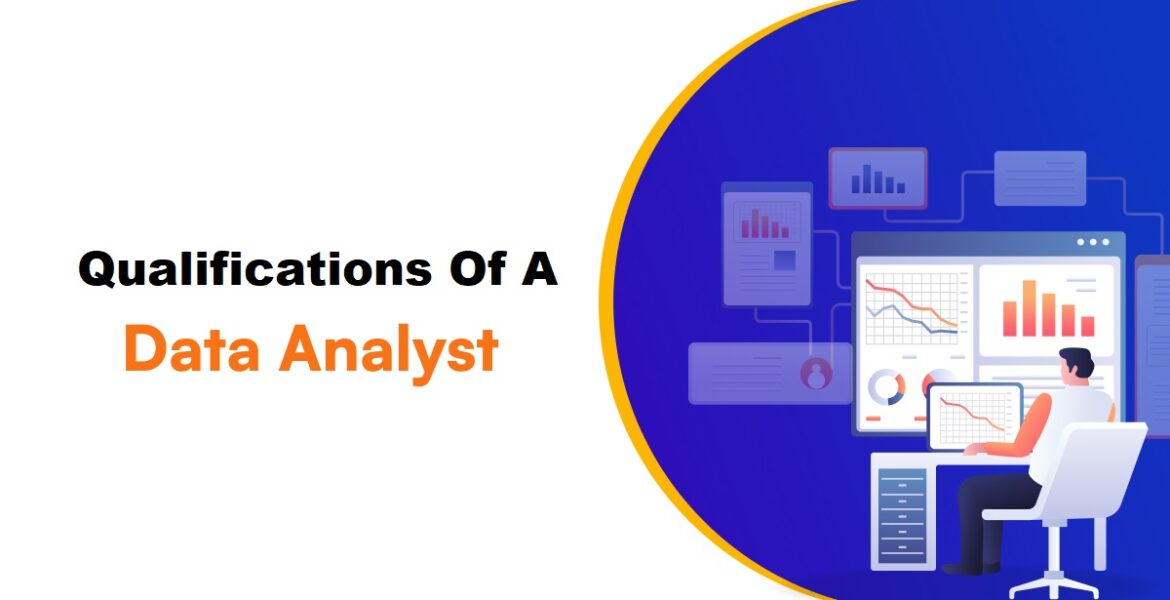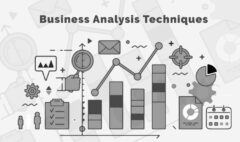What Are The Qualifications Of A Data Analyst?
In today’s data-driven world, the Role of a Data Analyst is more crucial than ever.
With businesses relying on data to make informed decisions, the demand for skilled professionals who can extract actionable insights from data is on the rise.
If you’re in the UK and considering a career as a Data Analyst, it’s essential to understand the qualifications required for this role.
In this blog post, we’ll explore the Qualifications of a Data Analyst and how the Digital Business School (DBS) can help you make a successful career transition into this dynamic field.
Qualifications of a Data Analyst
Certainly, let’s dive deeper into each of the qualifications and explore why they are essential for a successful career as a Data Analyst in the UK.

1. Educational Background
- Bachelor’s Degree: A bachelor’s degree is often considered the foundation for a career in data analysis.
Pursuing a degree in fields such as mathematics, statistics, computer science, economics, or a related discipline provides you with the necessary theoretical knowledge and analytical skills.
These subjects offer a strong quantitative foundation, which is crucial for working with data.
Example Scenario: Suppose you have a bachelor’s degree in mathematics.
This educational background equips you with mathematical and statistical knowledge, making it easier to understand and apply advanced data analysis techniques when working as a Data Analyst.
2. Analytical Skills
- Statistical Analysis: Statistical analysis is at the core of data analysis.
Data Analysts rely on statistical methods to uncover insights, test hypotheses, and make informed decisions.
Understanding concepts like hypothesis testing, regression analysis, and probability is fundamental for conducting rigorous data analysis.
- Data Interpretation: Data interpretation involves the ability to derive meaningful insights from data sets.
As a Data Analyst, you should be skilled in identifying trends, patterns, and anomalies within data.
Effective data interpretation helps organizations make informed decisions based on data-driven insights.
Example Scenario: Imagine you’re working for a retail company, and you use statistical analysis to identify the correlation between promotional campaigns and sales revenue.
Your ability to interpret data accurately leads to the discovery of the most effective marketing strategies.
3. Data Tools and Software
- Data Manipulation: Data Analysts work with vast datasets, and data manipulation skills are vital for cleaning, transforming, and preparing data for analysis.
Proficiency in data manipulation tools like SQL, Python, or R allows you to extract, filter, and structure data efficiently.
- Data Visualisation: Data visualisation is the art of presenting data in a visual format that is easy to understand.
Skills in data visualization tools such as Tableau, Power BI, or matplotlib for Python are essential for creating informative charts, graphs, and dashboards.
Example Scenario: You’re employed at a healthcare organization, and you use data manipulation tools to clean and organize patient data.
With data visualization skills, you create intuitive dashboards that display patient outcomes, helping healthcare professionals make timely decisions.
4. Database Management
- Understanding database management systems (DBMS) is crucial because data is often stored in databases.
Proficiency in SQL (Structured Query Language) is particularly valuable for querying and retrieving data from relational databases.
Database knowledge enables Data Analysts to access and analyze data efficiently.
Example Scenario: In a financial institution, you’re tasked with analyzing customer transaction data.
Your understanding of database management and SQL allows you to extract and analyze financial data accurately, aiding in risk assessment and fraud detection.
5. Programming Knowledge
- Familiarity with programming languages like Python or R is highly advantageous for Data Analysts.
These languages offer extensive libraries and packages for data analysis and manipulation.
Python, in particular, has become a popular choice among Data Analysts due to its versatility and robust data analysis capabilities.
Example Scenario: You’re working for an e-commerce company, and you use Python to analyze customer purchase history.
Python’s libraries help you segment customers, identify buying patterns, and recommend personalized products, contributing to increased sales.
6. Domain Knowledge
- Domain-specific knowledge is valuable because it allows Data Analysts to understand the context in which data is generated and used.
Depending on the industry or sector you work in, having expertise in that field helps you make more informed analyses and insights.
Example Scenario: If you’re a Data Analyst in the healthcare sector, having domain knowledge of medical terminology and healthcare processes enhances your ability to analyze patient data effectively, identify health trends, and contribute to improved patient care.
7. Certifications
- While not always mandatory, certifications can demonstrate your commitment to professional development and enhance your credibility as a Data Analyst.
Certifications from reputable organizations such as Microsoft, SAS, or Google can validate your skills and knowledge in specific data analysis tools and techniques.
Example Scenario: You complete a certification in data analysis using a specific software tool.
This certification not only showcases your expertise to potential employers but also increases your chances of landing a Data Analyst role in a competitive job market.
In conclusion, the qualifications required for a Data Analyst role in the UK encompass a combination of education, analytical skills, technical proficiency, domain knowledge, and optionally, certifications.
By acquiring these qualifications, you can embark on a rewarding career in data analysis, leveraging data to drive informed decision-making and contribute to the success of organizations.
The Digital Business School (DBS) stands ready to support your journey by offering structured training programs, interactive learning experiences, experienced instructors, comprehensive career support, and flexible learning options.
Hence, making it easier for career switchers to become proficient Data Analysts and thrive in the world of data analysis methodologies and techniques.
How DBS Supports Career Transition

1. Structured Training Programs
DBS offers structured and comprehensive training programs specifically tailored to individuals looking to transition into Business Analyst or Data Analyst roles.
These programs are designed to provide a strong foundation in the essential methodologies, techniques, and tools required in the field of business analysis.
2. Interactive Learning Experiences
DBS’s approach to education emphasizes interactive learning experiences that go beyond passive content consumption.
Students actively engage with course materials and instructors, allowing them to apply what they learn to real-world scenarios, thus gaining practical skills.
3. Experienced Instructors
DBS prides itself on its faculty of experienced instructors who are industry experts and professionals in their respective fields.
These instructors not only impart theoretical knowledge but also provide valuable insights and mentorship throughout the learning journey.
4. Comprehensive Career Support
DBS understands that transitioning into a new career can be challenging, which is why it goes beyond training to offer comprehensive career support.
Career support services include assistance with resume building, interview preparation, and connecting students with job opportunities in the Business Analyst and Data Analyst fields.
5. Flexible Learning Options
Recognizing that career switchers come from diverse backgrounds, DBS offers flexible learning options to accommodate various learning styles and schedules.
Whether you are starting your career from scratch or looking to validate your existing skills, DBS provides customized pathways to meet your unique needs.
6. Hands-On Projects
DBS integrates practical experience into its curriculum through hands-on projects that mirror the challenges and complexities faced by professionals in the Business Analyst and Data Analyst roles.
These projects allow students to apply their knowledge in real-world situations, enhancing their readiness for the job market.
7. Networking Opportunities
DBS fosters a vibrant learning community that encourages networking and collaboration among students.
Through various events, workshops, and forums, students can connect with peers, industry professionals, and potential employers, expanding their professional network.
8. Continuous Learning and Updates
DBS is committed to staying up-to-date with the latest developments in the fields of business analysis and data analysis.
The institution regularly updates its curriculum to reflect industry trends and emerging methodologies and techniques, ensuring that students receive the most relevant and current education.
In conclusion, the path to becoming a successful Data Analyst in the UK hinges on a well-rounded combination of education, skills, and practical experience.
As organizations increasingly rely on data-driven decision-making, the role of a Data Analyst has become not only crucial but also highly rewarding.
The demand for Data Analysts continues to surge across various industries, as businesses recognize the value of extracting actionable insights from the vast amounts of data at their disposal.
Whether you are contemplating a career switch or aiming to augment your existing qualifications, venturing into the realm of data analysis can open up a world of opportunities.
This transformative journey is where the Digital Business School (DBS) emerges as your trusted partner and guide.
DBS understands the evolving landscape of data analysis and the specific needs of individuals aspiring to become proficient Data Analysts.
Here’s how DBS plays a pivotal role in helping you acquire the qualifications and skills necessary to thrive in this dynamic field.
- Structured Training Programs:
DBS offers meticulously structured training programs designed to equip you with the essential knowledge and hands-on skills required for success in the field of data analysis.
These programs encompass a comprehensive curriculum that covers various aspects of data analysis, ensuring you receive a well-rounded education.
- Interactive Learning Experiences:
DBS champions an interactive and engaging approach to learning. Through dynamic learning experiences, you actively engage with course content and instructors.
This hands-on methodology enables you to apply theoretical concepts to real-world scenarios, honing your analytical capabilities and problem-solving skills.
- Experienced Instructors:
The faculty at DBS comprises seasoned industry experts and professionals with a wealth of practical experience in the field of data analysis.
These instructors do not merely impart knowledge; they serve as mentors, offering invaluable insights, best practices, and guidance throughout your learning journey.
- Comprehensive Career Support:
DBS’s commitment to your success extends far beyond the classroom. The institution understands that achieving qualifications is just the beginning.
With comprehensive career support, DBS assists you in crafting a compelling resume, preparing for interviews, and connecting you with job opportunities that align with your newfound qualifications and skill set.
- Flexibility:
DBS acknowledges that career switchers and learners come from diverse backgrounds and have unique learning styles.
That’s why the school offers flexible learning options, accommodating various schedules and preferences.
Whether you’re taking your first steps into the world of data analysis or looking to validate your existing experience, DBS ensures that your learning journey is tailored to your specific needs.
In a rapidly evolving digital landscape where data reigns supreme, the qualifications of a Data Analyst hold immense value.
With the right education, skills, and practical experience, you can position yourself as a sought-after professional capable of transforming data into actionable insights that drive organizational success.
In essence, the Digital Business School (DBS) stands as your dedicated partner and guide on this transformative path.
Whether you are making a career shift or seeking to enhance your existing qualifications, DBS provides the guidance, resources, and expertise needed to excel as a Data Analyst in the dynamic and data-driven world of today.
So, take the first step towards your exciting journey in data analysis with DBS, and unlock a world of opportunities in the realm of data-driven decision-making.











